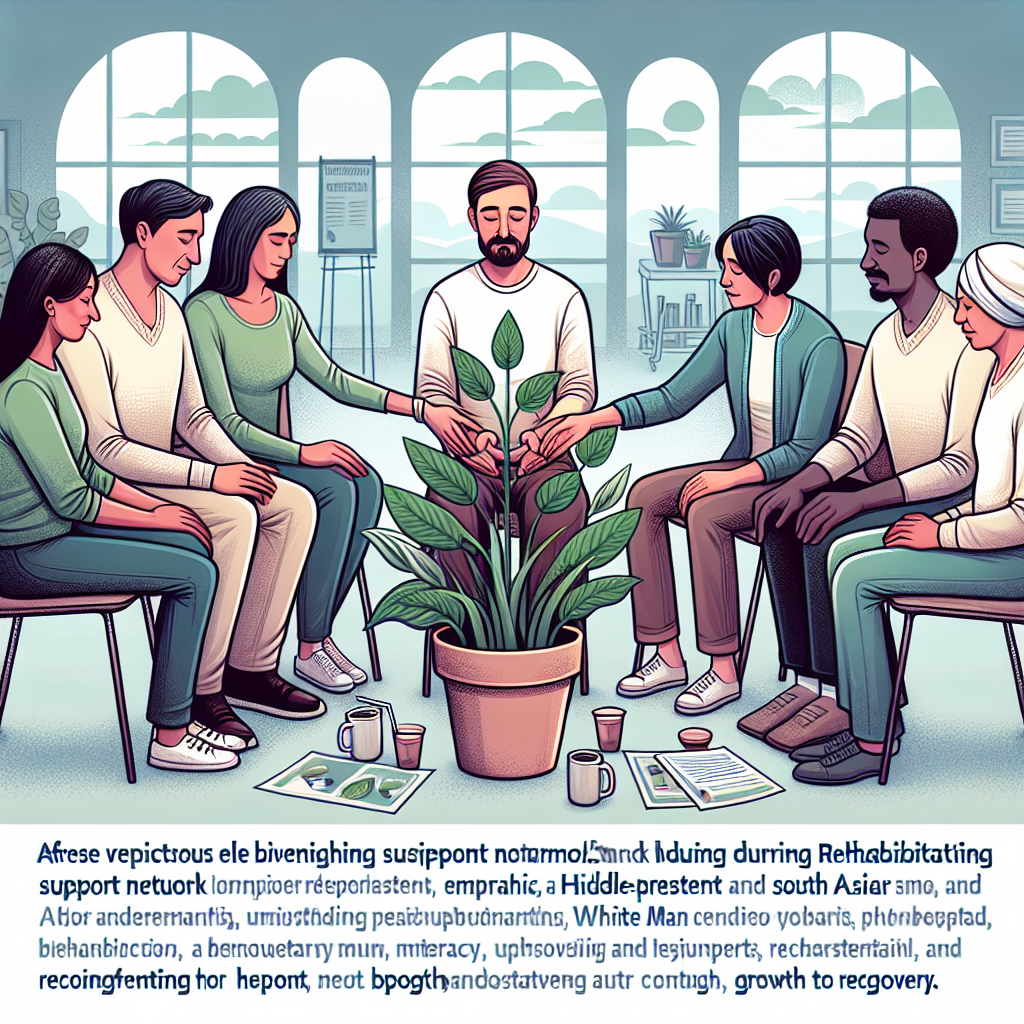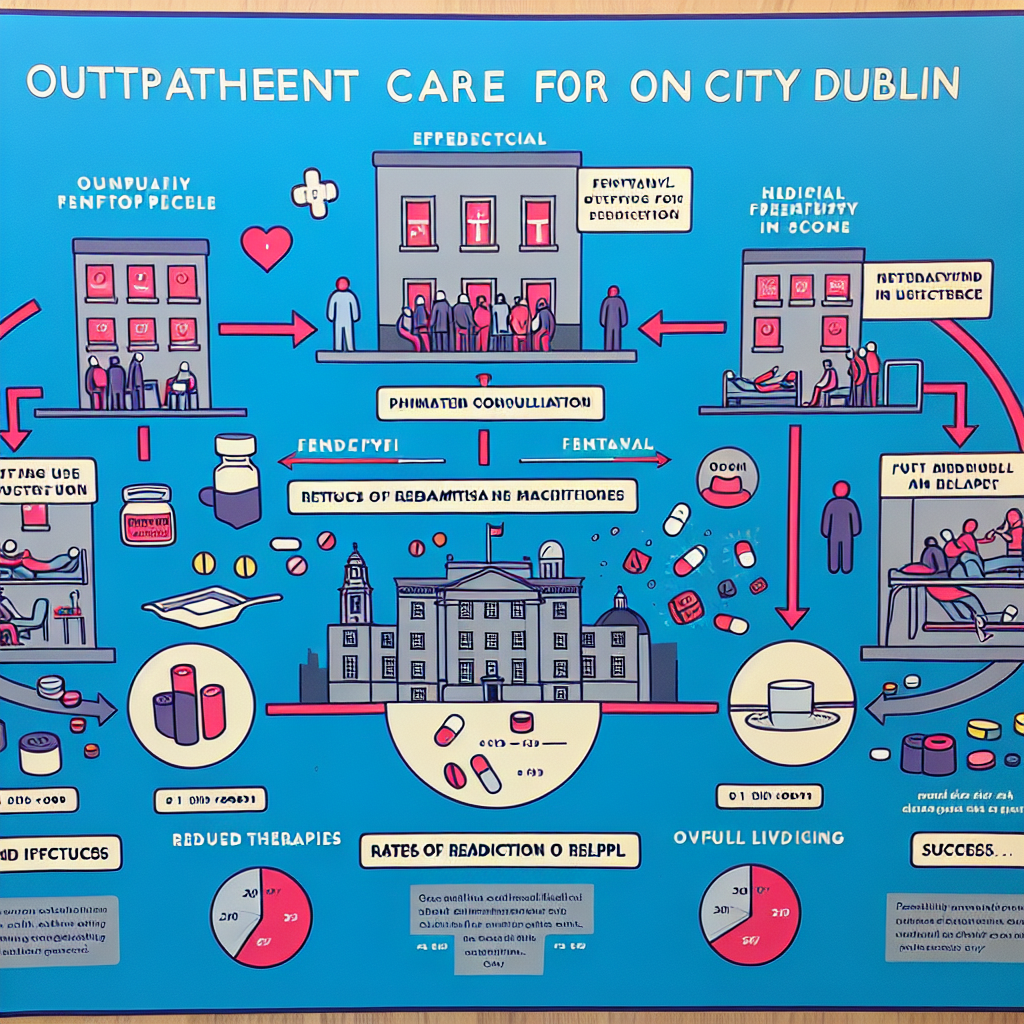-
Table of Contents

“Strength in Unity: Building a Lifeline Together During Fentanyl Rehab”
Introduction
Building a support network during fentanyl rehab is a crucial component of the recovery process. This network, comprising family, friends, healthcare professionals, and support groups, provides emotional, psychological, and practical assistance to individuals striving to overcome addiction. A robust support system can significantly enhance the chances of successful rehabilitation by offering encouragement, accountability, and a sense of community. It helps individuals navigate the challenges of withdrawal, cope with cravings, and rebuild their lives with a foundation of trust and understanding. Establishing and maintaining these connections is essential for long-term recovery and overall well-being.
Strategies For Building A Strong Support Network During Fentanyl Rehab
Building a support network during fentanyl rehab is a crucial step towards recovery, offering emotional, psychological, and practical assistance. The journey to overcoming addiction is often fraught with challenges, but having a strong support system can make a significant difference. One of the first strategies to consider is reaching out to family and friends. These individuals often form the backbone of your support network, providing unconditional love and understanding. By openly communicating your struggles and goals, you can foster a sense of trust and mutual respect, which is essential for a supportive environment.
In addition to family and friends, joining a support group can be incredibly beneficial. Support groups, such as Narcotics Anonymous, offer a safe space to share experiences and gain insights from others who are on a similar path. These groups can provide a sense of community and belonging, which is often missing during the isolation of addiction. Moreover, hearing success stories from others can be incredibly inspiring and can reinforce the belief that recovery is possible.
Another effective strategy is to seek professional help. Therapists and counselors who specialize in addiction can offer tailored advice and coping mechanisms. They can help you navigate the emotional and psychological aspects of recovery, providing tools to manage cravings and avoid relapse. Additionally, many rehab centers offer family therapy sessions, which can help mend strained relationships and educate loved ones about the complexities of addiction.
Building a support network also involves setting boundaries and managing expectations. It’s important to communicate your needs clearly and assertively. Let your support network know what kind of help you need, whether it’s someone to talk to during tough times or assistance with daily tasks. Setting boundaries ensures that your relationships remain healthy and that you don’t become overly dependent on any one person.
Furthermore, engaging in healthy activities can strengthen your support network. Activities such as exercise, meditation, and hobbies can provide a positive outlet for stress and anxiety. These activities can also be a way to connect with others who share similar interests, thereby expanding your support network. For instance, joining a local sports team or a book club can introduce you to new friends who can offer additional layers of support.
It’s also essential to stay connected with your support network even after completing rehab. Recovery is a lifelong journey, and maintaining these relationships can provide ongoing encouragement and accountability. Regular check-ins, whether through phone calls, text messages, or in-person meetings, can help you stay on track and remind you that you are not alone in your journey.
Lastly, don’t underestimate the power of self-compassion. Being kind to yourself and acknowledging your progress, no matter how small, can boost your self-esteem and motivation. Self-compassion can also make it easier to accept help from others, as it reinforces the idea that you are worthy of support and care.
In conclusion, building a strong support network during fentanyl rehab involves a combination of reaching out to loved ones, joining support groups, seeking professional help, setting boundaries, engaging in healthy activities, and practicing self-compassion. By employing these strategies, you can create a robust support system that will not only aid in your recovery but also enrich your life in countless ways. Remember, the journey to recovery is not one you have to take alone; with the right support, you can overcome the challenges and emerge stronger than ever.
The Importance Of Community Support In Fentanyl Rehabilitation
The journey through fentanyl rehabilitation is often fraught with challenges, but one of the most powerful tools in overcoming these obstacles is the support of a strong community. The importance of community support in fentanyl rehabilitation cannot be overstated, as it provides a foundation of encouragement, understanding, and shared experiences that can significantly enhance the recovery process. Building a support network during fentanyl rehab is not just beneficial; it is essential for long-term success and well-being.
To begin with, the isolation that often accompanies addiction can be profoundly detrimental to recovery efforts. Individuals struggling with fentanyl addiction may feel alone in their battle, which can exacerbate feelings of hopelessness and despair. However, by connecting with others who have faced similar struggles, individuals can find solace in shared experiences. This sense of camaraderie can be incredibly uplifting, as it reminds those in recovery that they are not alone and that others have successfully navigated the same path.
Moreover, community support offers practical benefits that can aid in the rehabilitation process. For instance, support groups provide a structured environment where individuals can share their stories, receive feedback, and learn coping strategies from others who have been through similar experiences. These groups often foster a sense of accountability, as members encourage one another to stay committed to their recovery goals. This accountability can be a powerful motivator, helping individuals stay on track even when faced with temptations or setbacks.
In addition to support groups, family and friends play a crucial role in the recovery journey. Their unwavering support and encouragement can provide a much-needed emotional anchor during difficult times. Loved ones can offer a listening ear, celebrate milestones, and provide practical assistance, such as helping with daily tasks or accompanying individuals to therapy sessions. This kind of support can alleviate some of the stress and anxiety associated with the rehabilitation process, allowing individuals to focus more fully on their recovery.
Furthermore, professional support is an integral component of a comprehensive support network. Therapists, counselors, and medical professionals bring expertise and guidance that are invaluable in addressing the complexities of fentanyl addiction. They can help individuals develop personalized treatment plans, teach coping mechanisms, and provide medical interventions when necessary. The combination of professional support and community encouragement creates a robust framework that addresses both the psychological and physical aspects of addiction.
Transitioning from rehabilitation to everyday life can be particularly challenging, and this is where ongoing community support becomes even more critical. After completing a rehab program, individuals may face triggers and stressors that can jeopardize their sobriety. Continued participation in support groups, maintaining open communication with loved ones, and seeking ongoing professional help can provide the stability needed to navigate these challenges. The sense of belonging and purpose that comes from being part of a supportive community can be a powerful deterrent against relapse.
In conclusion, the importance of community support in fentanyl rehabilitation is multifaceted and profound. By fostering connections with others who understand the journey, individuals can find the strength and encouragement needed to overcome addiction. The combined efforts of support groups, loved ones, and professionals create a comprehensive network that addresses the emotional, practical, and medical needs of those in recovery. Building and maintaining this support network is not just a step in the rehabilitation process; it is a cornerstone of lasting recovery and a testament to the power of human connection.
Q&A
1. **Question:** What are some key components of a support network during fentanyl rehab?
**Answer:** Key components of a support network during fentanyl rehab include family and friends, support groups (such as Narcotics Anonymous), healthcare professionals (like therapists and counselors), and community resources (such as local rehab centers and outreach programs).
2. **Question:** How can family members contribute to a support network during fentanyl rehab?
**Answer:** Family members can contribute by providing emotional support, helping with daily responsibilities, attending therapy sessions, encouraging adherence to treatment plans, and creating a stable and understanding home environment.
Conclusion
Building a support network during fentanyl rehab is crucial for long-term recovery and relapse prevention. A strong support system, including family, friends, healthcare professionals, and support groups, provides emotional encouragement, accountability, and practical assistance. This network helps individuals navigate the challenges of withdrawal, reinforces positive behaviors, and offers a sense of community and belonging. By fostering open communication and trust, a robust support network significantly enhances the chances of successful rehabilitation and sustained sobriety.



